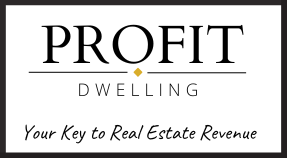How to Obtain Mortgage Pre-Approval with Bad Credit
-
- Understanding Credit Scores and Mortgage Approval
- Challenges Faced by Individuals with Bad Credit
- Options for Getting Pre-Approval with Bad Credit
- What are Some Lenders that Offer Pre-Approval for a Mortgages with Bad Credit
- What Factors Determine the Maximum Loan Amount for a Mortgage with Bad Credit
Securing a mortgage is a significant milestone in one's journey towards homeownership. However, the road to mortgage approval can become more challenging if you have bad credit. A low credit score can make you wonder if it's even possible to get approved for a mortgage. But fear not! In this article, we will explore the question, "Can you get approved for a mortgage with bad credit?" and delve into the possibilities and strategies available to individuals facing this situation.
The impetus behind crafting this article was a fortuitous encounter that unfolded in a bustling cafe. Engaged in the simple pleasure of savoring a freshly brewed cup of coffee, I found my attention captivated by the presence of an old acquaintance across the room. As our conversation unfolded, my friend confided in me, revealing a long-held aspiration to acquire a new home. However, a shadow of disappointment shaded his words as he lamented his perceived inability to achieve this goal. Lingering delinquencies in his financial obligations had taken a toll on his credit history, casting doubt upon his prospects of securing a mortgage.
Remarkably, he hadn't even attempted to explore this possibility, resigned to the assumption that his bad credit would be an insurmountable obstacle.
It was in that very moment, fueled by a desire to help my friend and others facing similar challenges, that I felt compelled to delve into the topic of obtaining a mortgage with bad credit. Through extensive research and drawing upon my expertise in the field, I aim to shed light on this often misunderstood subject, debunk misconceptions, and offer practical guidance to those who believe their tarnished credit history may forever hinder their homeownership dreams.
Your credit score plays a crucial role in determining your creditworthiness in the eyes of lenders. It reflects your financial history and helps lenders assess the level of risk involved in granting you a mortgage. But having bad credit doesn't automatically disqualify you from getting a mortgage. There are avenues and options available that can potentially lead to mortgage approval, even with a less-than-perfect credit history.
While the road may be more complex, it is important to remember that there are strategies, resources, and success stories that highlight the possibility of obtaining a mortgage with bad credit. By understanding the process, exploring your options, and taking proactive steps to improve your credit, you can position yourself for success in your pursuit of homeownership.

Understanding Credit Scores and Mortgage Approval
Credit scores play a crucial role in the mortgage application process, serving as a measure of an individual's creditworthiness. Lenders rely on credit scores to assess the level of risk involved in extending a mortgage loan. By understanding credit scores and their implications, prospective homebuyers can gain valuable insights into their mortgage eligibility and take necessary steps to improve their creditworthiness.
Credit scores typically range from 300 to 850, with higher scores indicating better creditworthiness. While specific scoring models may vary slightly, it is generally understood that credit scores can be categorized into several ranges:
- Excellent Credit. A credit score ranging from 800 to 850 reflects excellent creditworthiness. Individuals in this range are likely to have a strong history of on-time payments, low credit utilization, and a well-established credit profile.
- Good Credit. A credit score ranging from 670 to 799 is considered good. Individuals in this range demonstrate responsible credit management, though there may be minor blemishes in their credit history.
- Fair Credit. A credit score ranging from 580 to 669 falls into the fair category. While individuals in this range may still qualify for a mortgage, they may face some limitations and potentially higher interest rates.
- Poor Credit. A credit score below 580 is generally considered poor. Individuals with a poor credit score may encounter significant challenges in obtaining a mortgage, as it indicates a higher risk to lenders.
| Credit Score Range | Mortgage Eligibility |
| Poor (500-579) | Limited options, higher interest rates, larger down payment |
| Fair (580-669) | Some mortgage options available, moderate interest rates |
| Good (670-739) | More mortgage options, competitive interest rates |
| Excellent (740+) | Wide range of mortgage options, best interest rates |
While a lower credit score may present challenges, it is important to remember that creditworthiness is not solely determined by the score itself. Lenders assess creditworthiness by examining various factors beyond credit scores. They consider the applicant's overall financial picture, including income, employment history, debt-to-income ratio, and other relevant financial obligations. Additionally, they review the applicant's credit report to assess the presence of negative items such as bankruptcies, foreclosures, or collections.
Challenges Faced by Individuals with Bad Credit
Challenges Faced by Individuals with Bad Credit are significant when it comes to applying for a mortgage. The impact of bad credit can be far-reaching, affecting interest rates, down payment requirements, and loan options available to borrowers. Understanding these challenges is crucial for individuals with low credit scores as they navigate the mortgage application process and strive to achieve their homeownership goals.
Statistics show that a considerable percentage of individuals in the United States face the hurdle of low credit scores. According to recent data, around 30% of Americans have a credit score below 601, which falls within the lower range of creditworthiness. This significant portion of the population encounters obstacles when seeking mortgage financing due to their credit profiles.
One of the primary challenges faced by individuals with bad credit is the impact on interest rates. Lenders use credit scores as a key factor in determining the interest rate offered to borrowers. The lower the credit score, the higher the risk perceived by lenders, which often leads to higher interest rates. For example, someone with a credit score below 600 may face interest rates that are 1-2% higher compared to borrowers with excellent credit scores.
Additionally, bad credit can affect the down payment requirements imposed by lenders. While individuals with good credit may be able to secure a mortgage with a lower down payment, those with bad credit often face more stringent requirements. In some cases, borrowers with low credit scores may need to provide a larger down payment, typically ranging from 10% to 20% of the home's purchase price, in order to compensate for their credit risk.
Loan options for individuals with bad credit can also be limited. Traditional mortgage programs offered by banks and conventional lenders may be less accessible for those with low credit scores. This can lead to a higher rate of mortgage refusals or limited loan choices. Alternative options, such as government-backed loans like FHA (Federal Housing Administration) loans or VA (Veterans Affairs) loans, may be more accommodating for borrowers with bad credit, but they may still come with specific requirements and potential drawbacks.
Real-world examples illustrate the challenges faced by individuals with bad credit when applying for a mortgage. Research indicates that approximately 15% of mortgage applications from borrowers with credit scores below 620 are rejected by lenders. This rejection rate is significantly higher compared to borrowers with higher credit scores. Additionally, individuals with bad credit may encounter difficulties in securing competitive mortgage terms, leading to higher monthly payments and long-term financial implications.

Options for Getting Pre Approval with Bad Credit
- One of the primary options available for individuals with bad credit is the Federal Housing Administration (FHA) loan program. This government-backed initiative aims to assist borrowers with lower credit scores and more lenient qualification criteria. In fact, FHA loans are accessible to individuals with credit scores as low as 500, making them a viable solution for those struggling with their credit history. Furthermore, FHA loans typically require a minimum down payment of 3.5%, which is lower compared to conventional mortgage programs.
- Another option to consider is the Veterans Affairs (VA) loan program, which is specifically available to eligible veterans, active-duty service members, and their spouses. VA loans offer favorable terms, including competitive interest rates and no down payment requirements. The program also considers the unique circumstances of military personnel and provides opportunities for homeownership despite bad credit.
- One notable option that can provide hope for individuals with bad credit is the practice of manual underwriting. Unlike traditional automated underwriting processes that heavily rely on credit scores, manual underwriting takes a more comprehensive approach to evaluate a borrower's creditworthiness. It allows lenders to consider various factors beyond just a credit score, providing an opportunity for those with less-than-perfect credit to still be approved for a mortgage.
Manual Underwriting
When utilizing manual underwriting, lenders carefully review the borrower's financial profile, income stability, employment history, and other compensating factors that may outweigh the impact of a low credit score. This personalized assessment enables lenders to gain a deeper understanding of the borrower's ability to repay the mortgage, beyond what a credit score alone may indicate.
One key advantage of manual underwriting is that it allows for a more nuanced evaluation of the borrower's credit history. It recognizes that credit scores may not always reflect an individual's current financial situation or their ability to make timely mortgage payments. For example, someone who experienced a period of financial hardship in the past but has since demonstrated responsible financial behavior and improved their circumstances may still be deemed creditworthy through manual underwriting.
Additionally, manual underwriting provides an opportunity for borrowers to provide explanations and supporting documentation for any negative marks on their credit report. This allows them to present a more complete picture of their financial responsibility and address any extenuating circumstances that may have contributed to their credit challenges.
It's important to note that manual underwriting may require more time and effort compared to automated processes. Lenders must carefully analyze the borrower's financial documents, verify income and employment details, and conduct a thorough assessment of their overall financial situation. While this may result in a more rigorous approval process, it offers a valuable opportunity for individuals with bad credit to present their case and demonstrate their creditworthiness beyond a simple credit score.
Real-life examples abound of individuals who have successfully obtained a mortgage through manual underwriting despite having bad credit. For instance, Sarah, with a credit score of 550 due to past financial setbacks, was able to secure a mortgage by providing solid documentation of her steady income, stable employment, and a strong debt-to-income ratio. The lender recognized her commitment to improving her financial situation and found her creditworthy based on the manual underwriting evaluation.

What are Some Lenders that Offer Pre Approval for Mortgages with Bad Credit
While lenders may have varying criteria for pre-approval, there are some lenders known for offering mortgage pre-approval to individuals with bad credit. It's important to note that each lender's specific requirements and terms may differ, so it's advisable to contact them directly for the most accurate and up-to-date information.
Here are some lenders that are known for offering pre-approval for mortgages with bad credit:
- Prosperity Home Mortgage. Prosperity Home Mortgage is a national lender that offers pre-approval for individuals with bad credit. They have a wide range of loan programs and work with borrowers to find suitable mortgage options.
- Cherry Creek Mortgage. Cherry Creek Mortgage is another lender that considers pre-approval for borrowers with bad credit. They have loan officers who specialize in helping individuals with less-than-perfect credit find mortgage solutions.
- Better.com. Better.com is an online lender that uses a technology-driven approach to evaluate mortgage applications. They consider borrowers with bad credit and provide pre-approval options based on their individual circumstances.
- SWBC Mortgage. SWBC Mortgage is a full-service mortgage lender that offers pre-approval for individuals with bad credit. They have flexible loan programs and a team of professionals who can assist borrowers in navigating the mortgage process.
It's important to note that lender policies and requirements can change over time, so it's recommended to directly contact these lenders or research their current offerings to determine their eligibility criteria for pre-approval with bad credit. Additionally, it's beneficial to explore other lenders and compare their offerings to find the best fit for your specific needs and financial situation.
What Factors Determine the Maximum Loan Amount for a Mortgage with Bad Credit
When it comes to determining the maximum loan amount for a mortgage with bad credit, several factors come into play. While lenders may have their own specific criteria, here are some common factors that can influence the maximum loan amount:
- Credit Score. Your credit score is a significant factor that lenders consider when determining the loan amount. A lower credit score may result in a smaller loan amount or higher interest rates. Discover the advantages and disadvantages of both fixed-rate and adjustable-rate mortgages in the article "The Pros and Cons of Fixed-Rate and Adjustable-Rate Mortgages".
- Debt-to-Income Ratio (DTI). Lenders assess your DTI, which compares your monthly debt payments to your gross monthly income. A high DTI indicates a higher risk for the lender, potentially affecting the loan amount they are willing to offer.
| Credit Score Range | Maximum Allowable DTI Ratio |
| Poor (500-579) | Up to 43% |
| Fair (580-669) | Up to 45% |
| Good (670-739) | Up to 50% |
| Excellent (740+) | Up to 50% |
- Loan-to-Value Ratio (LTV). The LTV ratio is the loan amount divided by the appraised value of the property. Lenders may have maximum LTV requirements, meaning they will lend only a certain percentage of the property's value. A lower credit score could result in a lower LTV ratio and, consequently, a smaller loan amount.
| Credit Score Range | LTV Ratio | Down Payment Requirement |
| Poor (500-579) | 90-95% | 10-20% of the purchase price |
| Fair (580-669) | 85-90% | 10-15% of the purchase price |
| Good (670-739) | 80-85% | 5-10% of the purchase price |
| Excellent (740+) | Up to 80% | 20% or less of the purchase price |
- Income and Employment Stability. Lenders typically evaluate your income and employment history to assess your ability to repay the loan. A stable income and employment record can positively impact the maximum loan amount.
- Down Payment. Providing a larger down payment can increase the loan amount you qualify for, even with bad credit. It reduces the lender's risk and shows your commitment to the investment.
- Loan Program and Lender Policies. Different loan programs have varying guidelines and restrictions. Some lenders may have specific programs designed for borrowers with bad credit, allowing for more flexibility in the loan amount.
It's important to note that each lender may have its own unique underwriting guidelines and criteria. It's advisable to consult with multiple lenders and discuss your specific situation to determine the maximum loan amount you may qualify for with bad credit.

The Essential Steps for Pre-Approval with Bad Credit
To improve your chances of getting approved for a mortgage with bad credit, several steps can be taken. While having bad credit may present challenges, it's important to remember that it's not an insurmountable obstacle. By following these steps, you can enhance your prospects of obtaining mortgage approval:
- Review and improve your credit. Start by obtaining a copy of your credit report from major credit bureaus. Thoroughly review the report for any errors or inaccuracies and address them promptly. Develop a plan to improve your credit by paying off outstanding debts, making timely payments, and reducing your credit utilization ratio. While this process may take time, it can significantly enhance your creditworthiness in the eyes of lenders.
- Save for a larger down payment. A larger down payment can offset the impact of bad credit. Saving up for a substantial down payment demonstrates your commitment to the investment and reduces the lender's risk. Aim for a down payment of 20% or more if possible.
- Explore government-backed loan programs. Investigate loan programs specifically designed for individuals with bad credit, such as Federal Housing Administration (FHA) loans or Veterans Affairs (VA) loans. These programs often have more flexible credit requirements and lower down payment options, making them accessible for borrowers with imperfect credit histories.
- Consider alternative lenders. Traditional banks and mortgage lenders may have stricter lending criteria. However, alternative lenders, such as credit unions or specialized mortgage lenders, may have more flexible terms for borrowers with bad credit. Research and reach out to different lenders to explore your options.
- Get a co-signer. If possible, consider finding a co-signer with a strong credit history to apply for the mortgage with you. A co-signer can help offset the negative impact of your bad credit and increase the likelihood of mortgage approval.
- Demonstrate Stable Income. Lenders assess your ability to make mortgage payments based on your income stability. Maintain a steady job and provide thorough documentation of your income, including pay stubs, tax returns, and bank statements. A consistent income stream can instill confidence in lenders, even with bad credit.
- Be Prepared to Explain Your Situation. During the application process, be ready to provide a detailed explanation of your bad credit history. Highlight any extenuating circumstances, such as job loss, medical emergencies, or divorce, that may have contributed to your credit challenges. Demonstrating responsibility and a proactive approach to improving your financial situation can help mitigate concerns.
- Seek Professional Advice. Consider consulting with a mortgage broker or a financial advisor specializing in bad credit mortgages. They can provide personalized guidance, offer insights into available loan options, and help you navigate the complexities of the mortgage application process.
Remember, getting approved for a mortgage with bad credit may require patience, persistence, and proactive steps to improve your financial standing. By taking these measures, you increase your chances of securing a mortgage and fulfilling your dream of homeownership.
Sincerely,
William Anderson
Profit Dwelling
In preparing the study, the following sites were used as sources:
-
- "How to Get a Mortgage With Bad Credit" by U.S. News - Money
- "Buying A House With Bad Credit: A Guide To Your Home Loan Options" by Rocket Mortgage
- "How To Get A Mortgage With Bad Credit" by Forbes Advisor
To access comprehensive information and valuable insights on obtaining a mortgage, we recommend delving into the in-depth content of our "Mortgage loan" section.

Comments powered by CComment